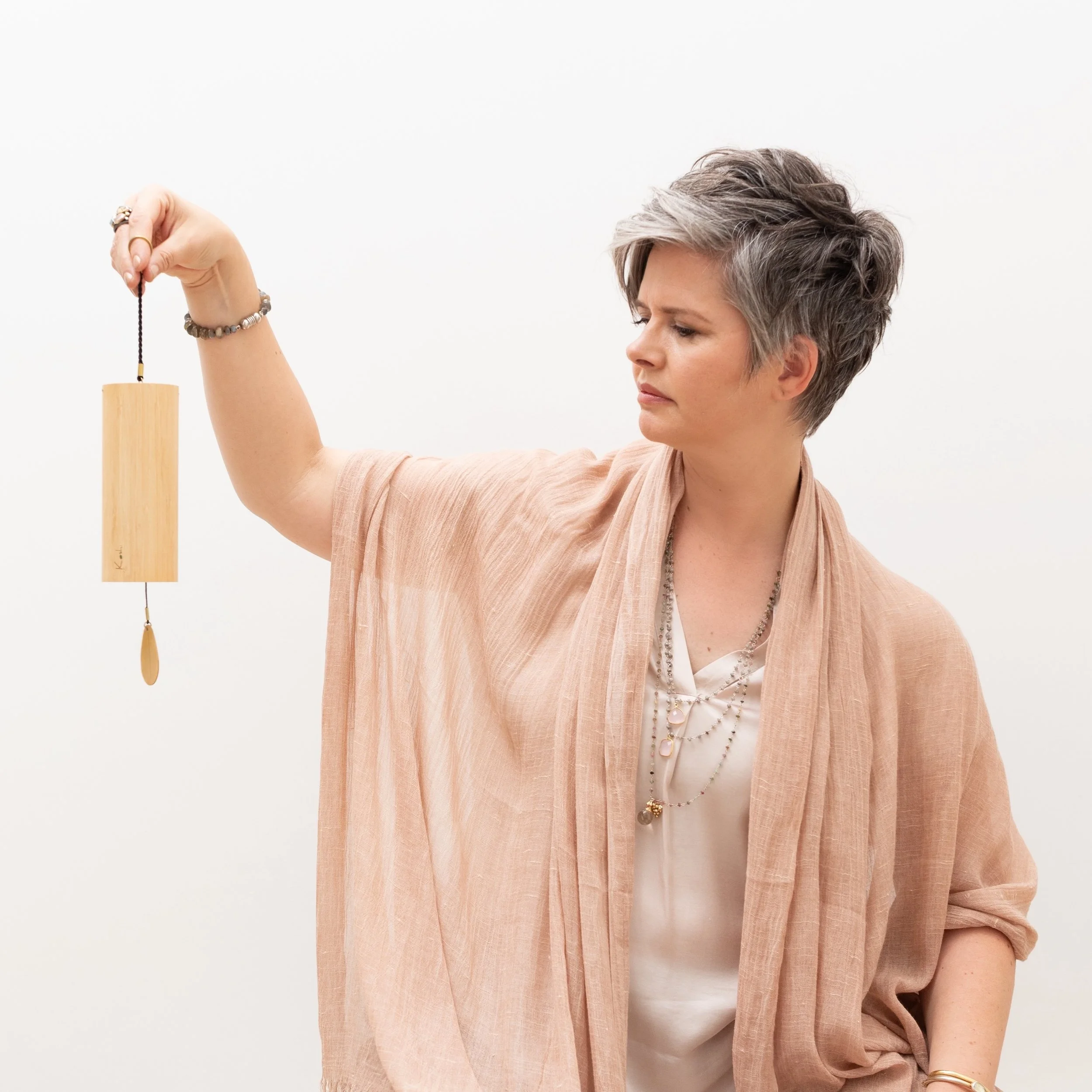Sound Healing
Frequently Asked Questions
-
Sound healing is a therapeutic practice that uses sound frequencies—created by instruments like crystal bowls, tuning forks, gongs, chimes, or voice—to support physical, emotional, and energetic balance. These vibrations help shift brainwaves, regulate the nervous system, and guide the body into deep rest and restoration.
The sounds create a vibrational field that invites the nervous system to relax, the mind to quiet, and the body to release held tension. As the group or individual drops into stillness, sound works on both a personal and collective level—supporting healing, connection, and inner balance.
No experience is required—just a willingness to listen, receive, and return to yourself.
-
In a typical session, you’ll lie down (fully clothed) on a mat or table and simply receive. You may hear and feel the sound of crystal singing bowls, chimes, or other instruments played around or near your body. There’s nothing you need to do—just relax and let the sound move through you.
-
Not at all. Sound healing is accessible to everyone. You don’t need any background in meditation, energy work, or spiritual practices. Just bring an open mind and allow the experience to meet you where you are.
-
Many people come to sound healing for support with:
Stress or burnout
Anxiety and overthinking
Sleep issues or insomnia
Chronic pain or tension
Emotional overwhelm or trauma integration
Feeling stuck, scattered, or disconnected
Sound healing can also enhance creativity, intuition, and spiritual connection.
-
Sound healing is generally gentle and safe. That said, it may not be suitable for individuals with:
Sound-induced seizures or epilepsy
Certain mental health conditions triggered by sound
Severe hearing sensitivities
If you’re unsure, please reach out before booking. I’m happy to talk through any concerns.
-
Yes—if you have any of the following, please consult your doctor before attending:
Carotid stenosis
Cardiac pacemaker, artificial valve, or arrhythmia
Stents or shunts
Deep brain stimulation (DBS) devices
Metal implants (especially in the spine or skull)
Epilepsy or sound-induced seizures
Pregnancy
If you live with tinnitus or vertigo, responses to sound healing can vary. Earplugs or distance from louder instruments may help if sensitivity arises.
Sound healing is not a substitute for medical care but can be a supportive complement when approached mindfully.
-
Most people feel calm, grounded, or emotionally lighter. Sometimes, energy or emotion may surface as the body processes. Drink water, rest, and give yourself time to integrate.
-
That depends on your needs. Some clients come weekly or monthly for ongoing support; others drop in for seasonal resets or during times of transition. We can explore what feels most helpful after your first session.
-
Absolutely. I offer a complimentary 30-minute Discovery Call so we can explore whether sound healing is a good fit for your needs.
This is a relaxed space to ask questions, share what’s present for you, and get a feel for the work. Together, we’ll clarify the best starting point and whether this path resonates with where you are.



